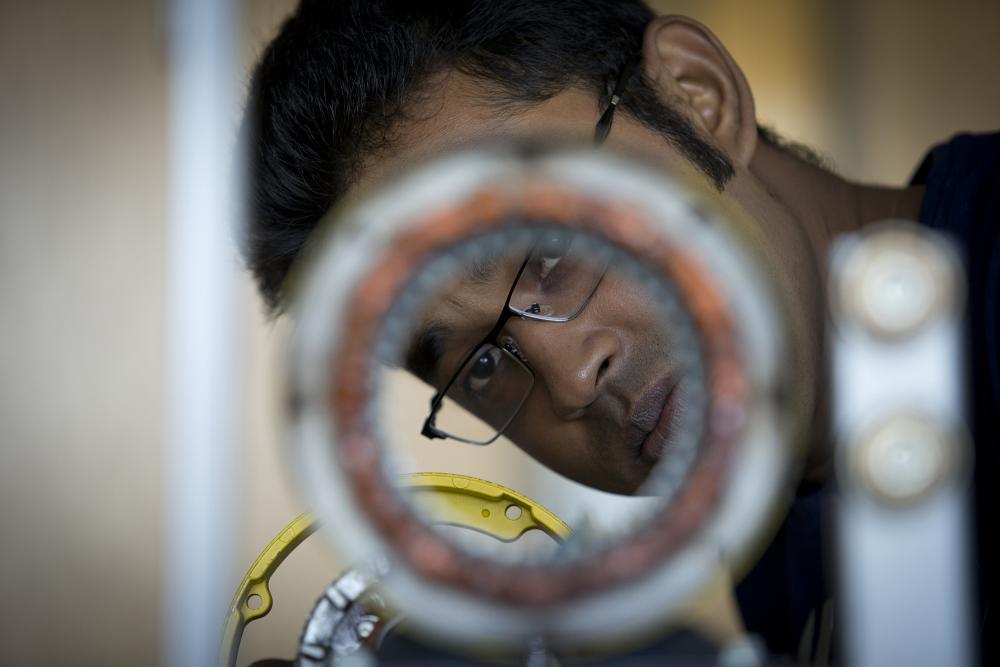Electrical Engineering PhD
Develop research and design experiments in the Electrical Engineering PhD, a terminal degree for future engineering educators, innovators and technicians offered at Temple University’s College of Engineering. As a PhD candidate, you’ll dive into highly interdisciplinary research projects with a focus on the science of electricity, electronics and electromagnetism. Doctoral candidates also have the opportunity to work with other Engineering departments, Mathematics and Physical Sciences, and the School of Medicine.
The small size and agility of the Department of Electrical and Computer Engineering will allow you to form close relationships and meaningful collaborations with faculty members. Professors operate according to an open-door policy, so you can visit them regularly outside of class to discuss questions, brainstorm independent research projects or talk through issues of professional development. You’ll form close relationships with your cohort, as well: Temple maintains a dynamic student body representing a wide range of ethnic, national and racial identities.
Opportunities for federally funded research with local companies allow for learning the most advanced skills in electrical engineering.

